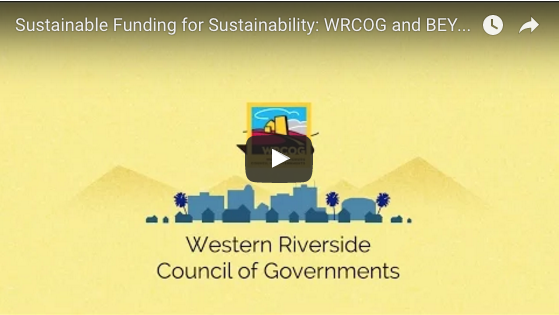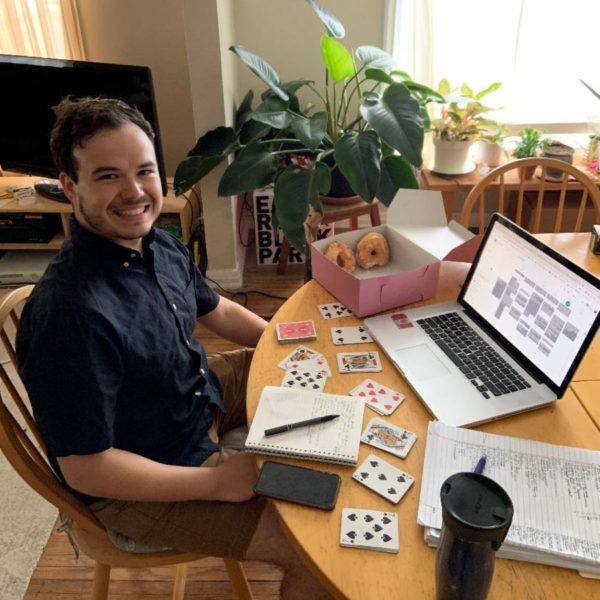CURRENTS Winter 2015
From Paris to California: Action on the Ground
Intro by Julia Kim, Local Government Commission
 The United Nations Conference on Climate Change (COP21) took place from November 30th to December 11th in Paris where more than 190 countries came together to adopt the most ambitious climate change agreement in history. The Paris Agreement makes a commitment to limit temperature rise to well below 2°C with a stretch goal of 1.5°C. Parties will aim to reach global peaking as soon as possible to be climate neutral by the second half of the century and will meet every 5 years starting 2020 to review progress and strengthen goals – 187 nations so far have set non-binding emissions reduction targets that will take effect in 2020. Additionally, developed countries have pledged to create a $100 billion fund to help developing countries leapfrog fossil fuel technology to utilize renewable energy and fight climate change. More information about COP21 and the Paris Agreement can be found in statements released by Governor Brown and The White House, as well as various news outlets.
The United Nations Conference on Climate Change (COP21) took place from November 30th to December 11th in Paris where more than 190 countries came together to adopt the most ambitious climate change agreement in history. The Paris Agreement makes a commitment to limit temperature rise to well below 2°C with a stretch goal of 1.5°C. Parties will aim to reach global peaking as soon as possible to be climate neutral by the second half of the century and will meet every 5 years starting 2020 to review progress and strengthen goals – 187 nations so far have set non-binding emissions reduction targets that will take effect in 2020. Additionally, developed countries have pledged to create a $100 billion fund to help developing countries leapfrog fossil fuel technology to utilize renewable energy and fight climate change. More information about COP21 and the Paris Agreement can be found in statements released by Governor Brown and The White House, as well as various news outlets.
Now that these bold goals have been established and agreed upon by leaders around the world, it’s now in the hands of local governments to take action and ensure progress towards accomplishing these aggressive goals.
San Diego’s Bold New Climate Action Plan
By Cody Hooven, City of San Diego
On December 15th, the San Diego City Council unanimously passed a bold, new climate action plan. The plan contains a bundle of policies and goals collectively creating a roadmap for the city to achieve State greenhouse gas emissions reduction targets, reducing half of its emissions in the next 20 years.
The Role of Regional Climate Action
by Suzanne Smith, Sonoma County Transportation Authority, Regional Climate Protection Authority
Sonoma County communities have a long history of planning and implementing regional initiatives to protect the environment and conserve natural resources. This tradition includes the creation of the nation’s first Regional Climate Protection Authority (RCPA) in 2009, a move that recognized both the magnitude and the cross-jurisdictional nature of climate change challenges.
CivicSpark on Fire
by Julia Kim, Local Government Commission
With limited capacity, resources, and time to address climate change, innovative partnerships and programs that achieve multiple benefits and provide both immediate and long-term results will be critical to successfully mitigating the most harmful effects, and adapting to the unavoidable impacts, of climate change.
Sustainable Funding for Sustainability: WRCOG and BEYOND
Intro by Julia Kim, Local Government Commission and video by Jon DeHart, Local Government Commission
Securing funding for implementing sustainability projects is the most common challenge that local governments face. Western Riverside Council of Governments (WRCOG) found an innovative solution to ensuring progress towards their Sustainability Framework, and we just had to learn more about it. Check out this video to learn more about WRCOG’s BEYOND Framework Fund:
Revving Up California’s EV Adoption
by Julia Kim, Local Government Commission
As you know, California has set the most ambitious targets for cutting greenhouse gas emissions in North America and will require a new level of coordination and innovation to reach 40% below 1990 levels by 2020 and 80% below 1990 levels by 2050. With nearly 40% of the state’s emissions coming from transportation, the largest single source, the proliferation of electric vehicles (EVs) is a key strategy to work towards achieving state goals.
The Future of Net Energy Metering
by Julia Kim, Local Government Commission
On December 15th, the California Public Utilities Commission (CPUC) issued a Proposed Decision on Net Energy Metering, which proposes a successor program to the current Net Energy Metering (NEM or Net metering) program to ensure that Californians will continue to receive the benefits from going solar.
New Resources
SB 350 & AB 802: Impacts and Implications for Local Governments
On December 3rd, the Local Government Commission in partnership with the Statewide Energy Efficiency Collaborative hosted a webinar with CEC Commissioners David Hochschild and Andrew McAllister to dive into two key laws passed this session—SB 350 and AB 802. The presentations focused on the key takeaways of the new laws, particularly how they impact local governments, and features an in-depth Q&A session with the Commissioners.
- Webinar recording (Youtube)
- Presentation: Commissioner Hochschild Hochschild (PDF)
- Presentation: Commissioner McAllister (PDF)
- 2015 California Climate and Energy Legislative Update (PDF)
Feasibility Analysis Workbook
The Local Government Commission, in partnership with the Statewide Energy Efficiency Collaborative (SEEC), developed a new resource for local governments to assess the feasibility and viability of new projects and initiatives.
Local Government Commission Newsletters
Livable Places Update
CURRENTS Newsletter
CivicSpark™ Newsletter
LGC Newsletters
Keep up to date with LGC’s newsletters!
Livable Places Update – April
April’s article: Microtransit: Right-Sizing Transportation to Improve Community Mobility
Currents: Spring 2019
Currents provides readers with current information on energy issues affecting local governments in California.
CivicSpark Newsletter – March
This monthly CivicSpark newsletter features updates on CivicSpark projects and highlights.




